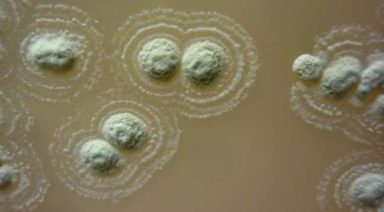Spleen Health and Function: 60 Ways to Support a Healthy Spleen

Your beautiful, useful, little spleen is a vital organ found under the ribcage, in the upper left part of your abdomen. According to Western Medicine, your spleen is the largest organ in the lymphatic system, making spleen health crucial. It is sister to your tonsils, adenoids, and thymus. Helpful to your digestion and immune system, your spleen is like a youth hostel for the different aspects of your blood.
Your lymphatic system is a compilation of tissues and organs that rid your body of waste, toxins, and other non-beneficial materials. Your “lymph” is a powerful fluid that contains white blood cells, the little warriors that fight infections. According to Western Medicine, the spleen keeps your bodily fluids in balance, yet it is possible to live without it. Traditional Chinese Medicine (TCM) offers similar ideas, yet expands upon these premises.
There are many similarities between the attributes of Western Medicine and TCM perspectives. Rather than distill each as a separate pathway to spleen vitality, I’ve combined most of their similarities and offer suggestions on dietary and behavioral changes in support of your spleen’s health.
In all things related to your health, seek forward-thinking doctors, D.O.s, and naturopathic practitioners to advance your health and well-being.
What Is the Spleen’s Function?
As a filter for blood, and a hunter of harmful bacteria, viruses, and other microorganisms, the spleen is vital to your health and immune system. While the spleen stores platelets (thrombocyte) and white blood cells, it also recycles your old and tired red blood cells. TCM dives a little deeper into the value and functions of the spleen, thereby giving us a broader, more specific, and more relatable picture.
How to Strengthen Your Spleen?
In TCM, your spleen does not have the same definition that you’ll find in Western medicine, although both schools of thought appear to be more aligned than opposed. If we extrapolate from both methodologies, the spleen seems to be at least a vital partner to the stomach, and does the following:

Location of the spleen
- Digests information and environmental stimulus
- Assists in the digestion of food and converting it to energy
- Controls the blood
- Controls the muscles and the four limbs
- Influences transformation and transportation
- Connects with the lips and mouth
- Associates with enthusiasm, sadness, and worry
- Participates in digestive processes
- Houses the spirit and intellect
- Influences emotions
- Affects our minds and houses our thinking processes
- Controls our increasing energy (Qi)
- Provides warmth and vitality
In a society overloaded with messages and stimuli, our spleens tend to suffer. But through right-action, we can nurture our spleens into abundant health.
The spleen is akin to the Earth element and loves Summer through early Fall. Its Ayurvedic dosha is Kapha, which tends to be slow, conscious, thoughtful, careful, and grounded. When we allow ourselves to adopt some of these Kapha attributes during the Summer and Fall, we feed, heal, and nurture our spleens. To increase enthusiasm and positivity, consider researching Pitta Aggravated diets.
Sadly, given how overworked our minds, bodies, and lives are, most spleens are not always in balance. In TCM, the condition is called, “Spleen Qi Deficiency,” and it’s characterized by sadness, loose stools, fatigue, confusion, feelings of being overwhelmed, decreased vitality, weakened immunity, poor digestion, and feelings of defeat.
But wait, there’s more! You can protect your spleen’s health with just a few simple changes in diet and behavior. You’ll find 60 total ways to support your spleen within this article. Try these on for size:
- Avoid cold drinks and ice in your beverages
- Honor and express your emotions, especially sadness
- Be mindful about your schedule and related stressors
- Be careful when taking on new projects
- Chew your food slowly and thoroughly
- Eat warm, veggie-abundant soups and broths
- Take breaks
- Pause activities and thinking often
- Try acupuncture and acupressure
- Laugh to open the heart, and release tension and toxins
- Pray to inspire hopefulness and positivity
- Meditate to reduce worry, anxiety, or overthinking
- Seek ways to “get over yourself” and reduce negative attitudes
- Fake happiness until you embody aspects of happiness
- Cuddle your loved-ones often
Foods That Support Your Spleen
Whether coming from Western Medicine or TCM, everybody seems to agree: Eating five small meals per day is healthier than eating three large meals, and adding spleen-friendly foods to your diet can turn your spleen into a heroic warrior.
Spleen aficionados suggest these foods for improving your spleen’s health:
- Winter squash, carrot, rutabaga, parsnip, turnip, sweet potato, yam, pumpkin
- Legumes like garbanzo beans, kidney beans, adzuki beans, lentils, black beans, and peas
- Sesame seeds, pumpkin seeds, and sunflower seeds
- Seaweed and kelp
- Green tea, jasmine tea, raspberry leaf tea, chai tea
- Walnuts, chestnuts, pine nuts, pistachios
- Aloe vera gel and juice
- Grapes
- Pomegranates
- Ginger, pepper, cardamom, onions, garlic, cinnamon, clove, fennel, rosemary, sage, turmeric, thyme, horseradish, cayenne, and nutmeg
- Instead of heavy sweets, try these less aggressive sweeteners to your diet: cooked fruits, rice syrup, barley malt, molasses, and stewed cherries
- Add a little protein to every meal
- Add a little bit of organic beef or bison to your weekly diet
Foods to Avoid Consuming for a Healthy Spleen
While many of these removal suggestions are helpful to your overall health, it is particularly beneficial for your spleen to limit:
- Cold, raw, and frozen foods
- Ice in your drinks
- Dairy
- Wheat
- Processed foods and refined flour
- Refined sugar
- Coffee
- Alcohol
- Peanuts and products like peanut butter
- Cucumber
- Winter melon
- Grapefruit
- Lettuce
- Bananas
- Avocados

Depiction of the lymphatic system
How Do You Check Your Spleen?
Your doctor and your Ayurvedic and TCM practitioners will check to see if your spleen is enlarged during your next physical exam. By gently pressing on your upper left abdomen, your practitioner can learn a lot about your spleen. Your doctor might also suggest imaging and blood tests to help identify the causes of your enlarged or inflamed spleen.
Ayurvedic practitioners will check the pulse of the spleen, along with the pulses of other vital and symbiotic organs. As one of Earth’s oldest medical sciences, including Ayurvedic methodologies, can provide a wealth of information. The more informed we are, the better decisions we’ll make, especially when trying to improve our physical health and emotional well-being.
Each of Western, Chinese, and Ayurvedic disciplines will help you nurture your spleen back to a blissful state.
Causes of Weak Spleen and Problematic Symptoms
According to Western science, many conditions can cause an enlarged spleen. These include a variety of infections, Parasites, Anemia, Leukemia, Hepatitis, Jaundice, Malaria, Liver disease, and some Cancers. Some of the symptoms of a weak spleen might include:
- Pain in the upper left abdomen
- Pain or discomfort in the left shoulder
- Feeling full without eating
- Fatigue
- Frequent infections
- Bloating and gas
- Weak limbs
- Little desire to speak
- Prolonged headache
- Dizziness
- Tired eyes
Spleen Herbs and Supplements
The company Standard Process has several products that help the immune system. They also sell excellent products directed at the spleen, most notably, “Spleen Desiccated.” These types of products are finding their ways into western medical research and are showing encouraging outcomes when compared to pharmaceuticals and other types of supplements. Consider researching bovine and porcine concentrated, desiccated spleen extracts to improve the health of your spleen.
Other supplements include products directed at the adrenals, thymus, Qi, and reducing stress. Consider that when the liver is overburdened, the spleen is under excess pressure to perform. You’ll find that liver supplements and trace minerals might also be beneficial to your spleen.
Traditional Chinese Medicine tells us that the following herbs can be helpful to your spleen:
- Astragalus (黄芪)
- Ginseng (人参)
- Codonopsis (丹参)
- Chinese Yam (Huai Shan)
- White Atractylodes ( 白术)
- Licorice (甘草)
Naturopathic doctors might also encourage you to incorporate herbs such as Dandelion, New Jersey Tea, Barberry, and Iris into your health strategy.
While every instance of a weak spleen might require an individual regiment, the Ayurvedic supplements that might support your spleen, include:
- Ashwagandha
- Turmeric
- Holy Basil
- Gotu Kola
- Shilajit
- Brahmi
- Trikatu
- Triphala
- Sandalwood
- Cordyceps
- Cloves Bud
- Amla Fruit
Each of us has a unique set of emotions, environmental influences, and karmic attributes that filter through our spirits and physical bodies. When seeking improvements to our health and well-being, it’s beneficial to do lots of research and invite the counsel of medical, healing, and spiritual professionals.
While TCM, Western Medicine, and Ayurvedic Medicine each offer unique perspectives, the best solution is the one that works for you. Research each of the pathways outlined here to find the solution that brings you the most vitality and vibrancy. You might find that a combination of these methodologies to be your most successful pathway to an empowered spleen and abundant health.
Biorhythm Research is Creating New Paradigm in Women's Health

Following decades of being excluded from clinical studies, women today are suffering dire consequences. Can new research finally reverse the misunderstandings and help women harness the power of their unique biology?
Kayla Osterhoff is a neuropsychophysiologist studying the mind-body connection, with a focus on women’s health.
“Well most people are probably not aware of this, but women actually represent the largest gap in health science research that exists today,” Osterhoff said. “This is perpetuated by a problem that actually manifested back in 1977 when the FDA formally banned all women of child-bearing potential from all clinical research. That ban remained in effect until 1993, and to this day, the damage has been done and women are still left out of the clinical research.”
“The reason why women are left out of the clinical research is that women are biologically complex, meaning that they are biologically, biochemically, and physiologically shifting constantly because of our female hormone cycle that drives our physiology. The other reason is that women are risky research subjects, meaning that they can become pregnant at any time during the study. So, while it is understandable from an ethical standpoint, it cannot remain in effect because women are really being disempowered by this gap,” she said.
The repercussions of this scientific gap have been profound and were highlighted in a recent study.





































